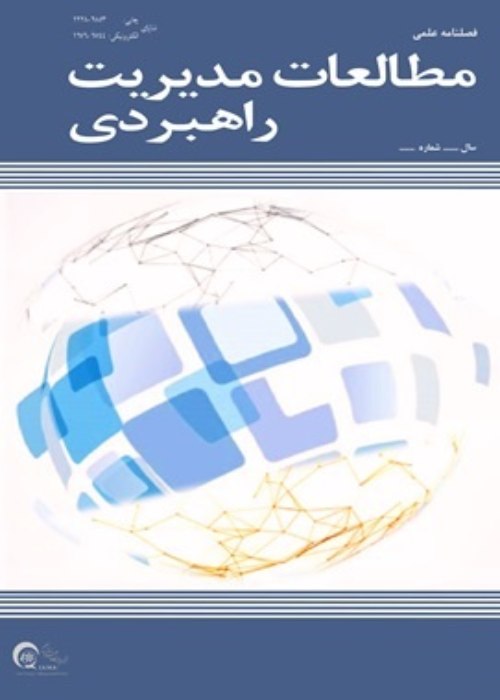Modeling Brand Heritage and Nostalgic Experience on the Love and Brand Preference Sport Products
Today, the sport industry is of great economic importance with the growing tendency of people to play sport and the need to consume sport goods and services (Kokolakakis & Gratton, 2019: 51). The quality and quantity of this industry in different countries depends on the scope of production of sport products in that country (Yang et al, 2021: 1). In this regard, brand heritage, nostalgic experience and brand love are key marketing concepts that can play a major role in branding and strengthening the brand. Brand preference is widely used to evaluate the effects of brand equity and indicates a desire to choose and buy a brand (Patil, 2017: 14). Utilizing the potential and hidden value of a brand heritage can be a way to link the past and the present and secure the future (Zhe, Zhu, & Huan., 2020: 179). Nostalgia is also used in marketing; In this way, marketers encourage consumers to travel to the past to buy goods (Kordnaeij, Nejat & shahi., 2019: 41). Therefore, brand preference can be introduced as one of the main explanations of customers' intention to buy. In view of the above, it is necessary in the new era to improve and develop sport marketing with a new look at the role of various factors in this study, the effect of three variables of brand heritage, nostalgic experience and love for sport brand on brand preference and preference has been investigated. Now the question is whether there is a relationship between brand heritage and nostalgic experience with brand preference with the mediating role of brand love .Chen and Zhang (2019) have defined brand preference to the extent that the customer considers the services provided by the current company to be superior to the services provided by other companies (Chen & Zhong, 2019: 1). Akir (1996) first defined brand heritage as part of brand equity (Dion & Mazzalovo, 2016: 5894). Nostalgia is also a recurring experience in all cultures among young and old and a bittersweet experience that includes both feelings of sadness and longing for the past )Sedikides & Wildschut, 2018: 48). Brand love is also defined as the degree of a passionate emotional attachment that a customer is satisfied with a particular brand (Hajibabaei & Esmailpur, 2019: 1). In this regard, Cho and Chiu (2020) in their research concluded that the nostalgia of sport products was a significant and positive relationship with interest, brand equity and brand preference (Cho & Chiu, 2020: 315). In a recent study, Song and Kim (2021) showed that brand heritage directly and indirectly significantly influences customers' intention to buy and choose a brand through brand originality and nostalgic experiences (Song & Kim, 2021: 1). Liebl (2021) also examined the love of the sport brand in the Covid 19 crisis and concluded that brand love leads to a desire to pay more, spread more positive word of mouth and increase loyalty to the sport brand (Liebl, 2021: 65). In internal studies, eshfagh, khodadad hosseini & Mansouri Moayyed concluded that nostalgia variables have a positive and significant effect on tourist satisfaction (Eshfagh, Khodadad Hosseini & Mansouri Moayyed., 2019: 15). Background analysis shows that despite the importance of concepts such as brand preference, brand love, brand heritage and nostalgic experience in the field of branding, so far in the field of research of the country's sport industry, no study has been done on these variables.
The study was an applied research and was a correlational research based on structural equation modeling which has been conducted in the field. The population included all customers of sports stores in Tehran. 354 of them selected as a sample by a random-cluster method. 4 questionnaires were used to collect data. The validity of the questionnaires was confirmed by experts and their reliability was obtained using Cronbach's alpha for all four questionnaires above 0.7. Descriptive statistics were used for data classification and statistical deduction. Pearson tests were used in SPSS software and modeling structures in AMOS software.
Based on the research findings, it is observed that brand heritage has a significant positive effect on love the brand of sport goods (Sig = 0.001, t = 6.454) with an impact factor (β = 0.596). Nostalgic experience has a significant positive effect on love the brand of sport goods (Sig = 0.001, t = 3.170) and the coefficient value (β = 0.310) was obtained. Brand heritage has a significant positive effect on love the brand of sport goods (Sig = 0.001, t = 6.341) with impact factor (β = 0.620). Nostalgic experience has a significant positive effect on brand product preference (Sig = 0.001, t = 3.696) with an impact factor (β = 0.431). Finally, brand love has a significant positive effect on the brand preference of sport goods (Sig = 0.001, t = 4.323) with an impact factor (β = 0.503).
Based on the results of Pearson correlation test, it was observed that there is a significant positive relationship between brand heritage and nostalgic experience and brand love. Sport stores are recommended to do comprehensive research on creating the ideal physical space, music, friendly public relations, Internet and virtual, coloring and lighting, use of appropriate words, and…. In examining the relationship between brand heritage and brand preference, Pearson correlation results also showed that there is a significant positive relationship between these two variables. In addition, based on the research findings, it was observed that nostalgic experience and brand love has a significant positive effect on brand product preference. Considering the effect of brand love on brand preference, it is suggested that store managers take measures such as creating an intimate atmosphere in the store and treating the customer politely, arousing feelings and heart desires in various ways, creating a sense of belonging and brand affiliation. , Positive evaluation and… to increase customer interest.
- حق عضویت دریافتی صرف حمایت از نشریات عضو و نگهداری، تکمیل و توسعه مگیران میشود.
- پرداخت حق اشتراک و دانلود مقالات اجازه بازنشر آن در سایر رسانههای چاپی و دیجیتال را به کاربر نمیدهد.




